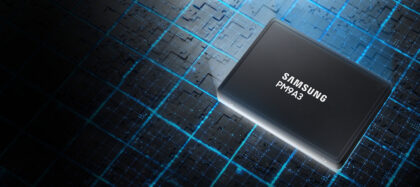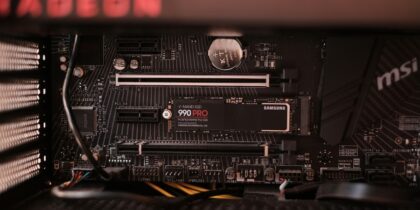New laptops are leveraging SSD performance to provide speeds beyond those of previous generations. While CPUs may get much of the attention with each new generation of laptops, the new M.2 interfaces available for flash drives can have as much or more of an effect on system performance than faster CPUs, while also producing less energy and heat than hard drives.
According to a new report by DRAMeXchange, as many as half of all laptops shipped in 2018 are expected to have SSDs instead of hard drives. Costs for SSDs are dropping precipitously, and their physical sizes are shrinking, which allows for more capacity in less space than with 2.5-inch drives. Furthermore, the new M.2 PCIe SSDs not only provide a smaller form factor, but are up to 10 times faster than hard disk drives, and have the potential for five times the performance of the fastest SATA SSDs, with transfer rates of up to 2,500 megabytes per second.
As manufacturers leverage three-bit per cell triple level cell (TLC) flash and multilayer or 3D construction, capacities are climbing — the M.2 drives have as much or more capacity than older 2.5-inch drives, even though they’re much smaller. Since the M.2 drives can connect via PCIe rather than the hard drive-oriented SATA interface, they can achieve much higher SSD performance levels, not only in transfer rates, but also in latency (the time it takes for the drive to respond) and in the number of input/out operations per second (IOPS) that the drive can achieve.
Manufacturers of laptops are rapidly adopting the new M.2 interface and adding one or two M.2 slots on their motherboards, allowing for both higher performance and smaller drives, enabling the design of thinner, lighter notebooks that can outperform their larger siblings. As costs for SSDs continue to drop, the premium for faster performance over HDDs is less and less. While a majority of SSD-equipped laptops will have 2.5-inch SSDs rather than the newer M.2 drives, the gains in performance are compelling, especially as cost becomes less of a factor.
Find more information on the improved storage capacities of SSDs here.







